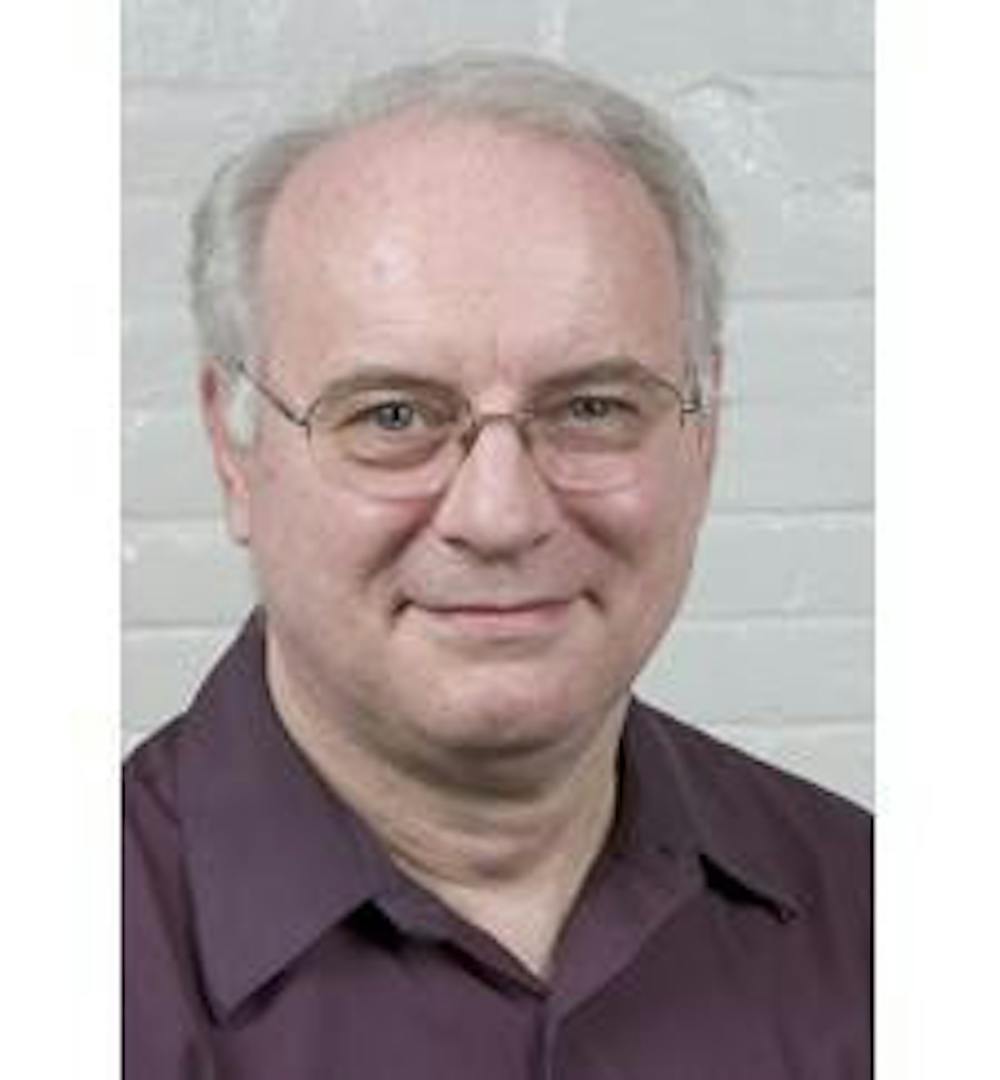This spring, Professor of Sociology Gregory Elliott is unveiling a new sophomore seminar, SOC 1872G: “First-Generation College Students: A Sociological Perspective.” The seminar examines the structural forces that impact first-generation students and their ability to succeed in college.
The seminar builds on a Group Independent Study Project that Elliott supervised called “First-Generation Students in the Ivy League,” which led to the 2014 founding of 1vyG, an annual conference that connects first-generation students across the Ivy League.
“The kinds of socioeconomic disadvantages that first-gens face are really based on class problems, not race or gender,” Elliott said. “You can be really smart, but there are socialization patterns that will prevent you from capitalizing (on) intelligence.” As a result, first-generation students do not always develop the critical thinking skills that other students acquire, setting them at a disadvantage in college, he said.
In part, Elliott speaks from personal experience — he was a first-generation student himself at Boston College. “When I got (to college), I had no idea what I was doing. I probably could have made much more out of my college experience if I had had the social and cultural capital from the beginning,” he said.
Elliott correctly anticipated that many of the prospective students shopping his class would be first-generation students as well. He said the course would be most helpful to sophomores as they try to find their place at Brown. Freshman year is too early, whereas for juniors and seniors, it would be like “turning the light on, after you’ve already scoured the room,” he said.
Elliott hopes that the course will inform campus dialogue of the first-generation experience beyond the classroom. At the end of the course, students will work on group projects that they present to the public at the First-Generation College and Low-Income Student Center. “(It) will be good for the community to gain new insights into the challenges faced by first-gens at college,” Elliott wrote in a follow-up email to The Herald.
As a first-generation student himself, Provost Richard Locke identifies strongly with the struggles that first-generation students at Brown face today, he said. Locke did not have the same roadmap as his peers whose parents attended college, he said. For example, Locke did not have anyone to advise him on course selection and thus decided to take organic chemistry — a notoriously difficult subject — as a freshman at Wesleyan, he added.
Despite these challenges, Locke did not seek advice for a long time. “I felt ashamed that I didn’t know. I thought it was my problem. I thought I was somehow deficient and that I must have snuck in,” he said.
“I got here 34 years ago, and I was banging on the door of this administration saying, ‘It’s not just racial diversity you need, you need class diversity,’” Elliott said. “They didn’t want to hear it.” It has only been in the last 10 years or so that Brown has cared about socioeconomic diversity, he added.
Locke said Brown has made huge investments in socioeconomic diversity since 2007, when the University adopted need-blind admissions and started to meet full demonstrated financial need for all admitted students. “I think (it’s) a very important statement of values of the University,” he said.
Locke has aimed to address the needs of the first-generation community at Brown since 2015, when he assumed the position of provost. After soliciting community feedback from first-generation and low-income students, Locke collaborated with the Dean of the College and Office of Student Life to examine the cost of attendance and healthcare for those on financial aid.
Several steps have since been taken to support first-generation students. In 2016, the University hired Vernicia Elie as assistant dean of the college for financial advising to help students manage their finances. In addition, the FLIC encourages first-generation and low-income students “to first of all embrace that identity” and provides them with resources such as peer-to-peer mentoring programs, Locke said.
Mike Munckong ’19, a first-generation student, found support and advice from a peer mentor through First-Gens@Brown, a student group founded after the launch of 1vyG.
First-generation faculty members can also play an important role in supporting students by serving as role models, Elliott said. “One of the things that especially first-gen faculty can do is to say, ‘I know what you’re going through.’”
Even before the creation of a center dedicated to first-generation and low-income students in 2016, first-generation administrators took their roles as mentors very seriously. Yolanda Rome, associate dean of the college for first-year and sophomore studies, started informally mentoring first-generation students through her initial appointment at Brown as director of academic outreach. “It just came about that students would come to workshops, and I would share my story … so (a lot of) first-gens would come up to me.” Rome now serves as the acting co-director of the FLIC, while the University continues its search for a full-time director.
Despite opening only five months ago, the FLIC already boasts a strong community support network with frequent gatherings and dinners for center affiliates. Munckong attended one such dinner last year, where he was persuaded by Elliott and the students who worked on the GISP to take the seminar.
Getting first-generation students to Brown “is the easy part. Helping them feel like they belong here, that’s the hard part,” Elliott said. “That, presumably, is what the (FLIC) and the 1vyG are about — where you go not just to learn the academic tricks of the trade, but also to learn the social (conventions) of a college.”





